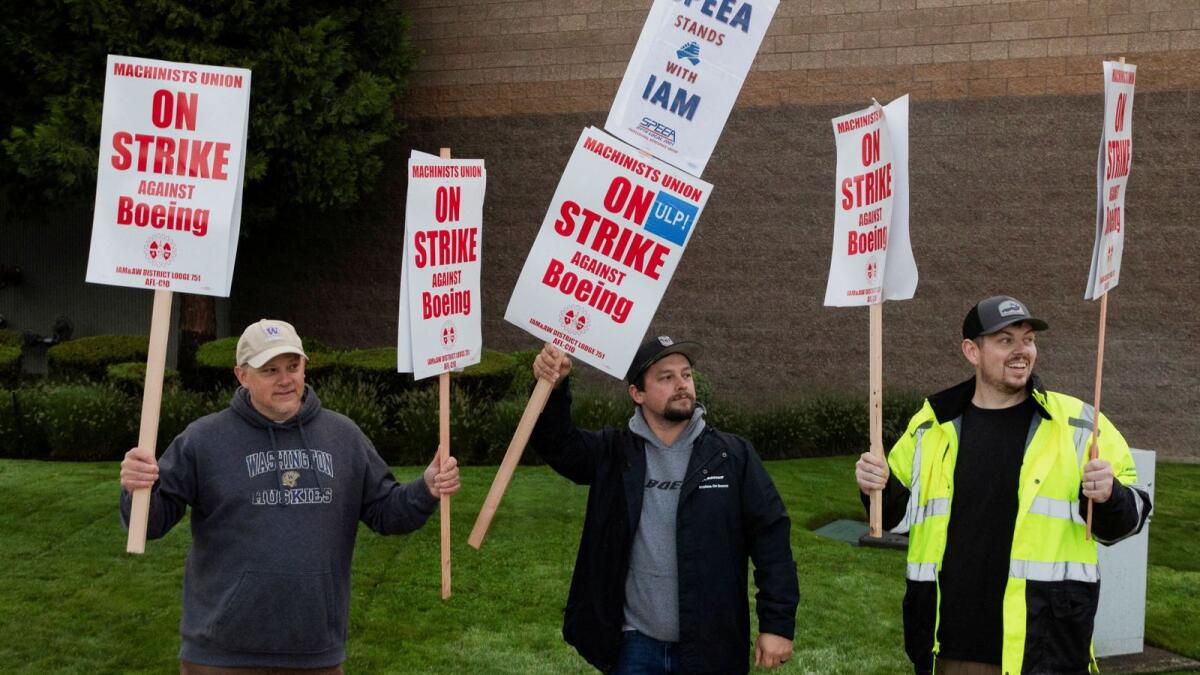A recent strike at Boeing by more than 30,000 members of the International Association of Machinists and Aerospace Workers (IAM) has caused disruptions in the production of Boeing’s 737 MAX and other jets in the Seattle and Portland regions. The workers are demanding a bigger wage increase and the restoration of a defined-benefit pension scheme that was lost during previous negotiations a decade ago. Union leader Jon Holden expressed confidence in the workers’ ability to negotiate better terms with Boeing, emphasizing that the strike could last a while.
Negotiations between Boeing and the union are set to resume next week, with U.S. federal mediators overseeing the talks following the overwhelming rejection of an initial contract offer by more than 94% of workers. The initial deal included a 25% pay rise spread over four years and a commitment by Boeing to build its next commercial jet in the Seattle region within the contract period. However, union members were dissatisfied with the removal of a performance bonus in the offer, which they felt would significantly reduce the impact of the headline salary increase.
The strike has had an immediate impact on Boeing’s stock, which fell 3.7% on Friday, contributing to a nearly 40% decrease in the company’s market value so far this year. With Boeing already struggling under a heavy debt load of $60 billion, a prolonged strike could further damage the company’s finances. Additionally, a pause in plane production could have ripple effects on airlines that fly Boeing jets and suppliers that manufacture parts for the aerospace giant.
Holden emphasized that the workers have the leverage and power at a crucial time in the negotiations and are prepared to stand united until their demands are met. The strike reflects the frustration of workers over years of stagnant wages and rising living costs, highlighting the importance of addressing these issues in the contract negotiations. Boeing’s decision to move forward with building its next commercial jet in the Seattle region is seen as a key factor in the negotiations, and union members are hopeful that their demands will be met through the bargaining process.
The outcome of the strike will not only impact the wages and benefits of Boeing’s workers but also have broader implications for the company’s financial stability and relationships with airlines and suppliers. As negotiations continue, the focus remains on finding a resolution that satisfies both the workers’ demands and Boeing’s interests. The strike serves as a reminder of the importance of fair wages and benefits for workers in maintaining a healthy and productive workforce in the aerospace industry. Ultimately, the success of the negotiations will be crucial for the future of Boeing and its employees.










